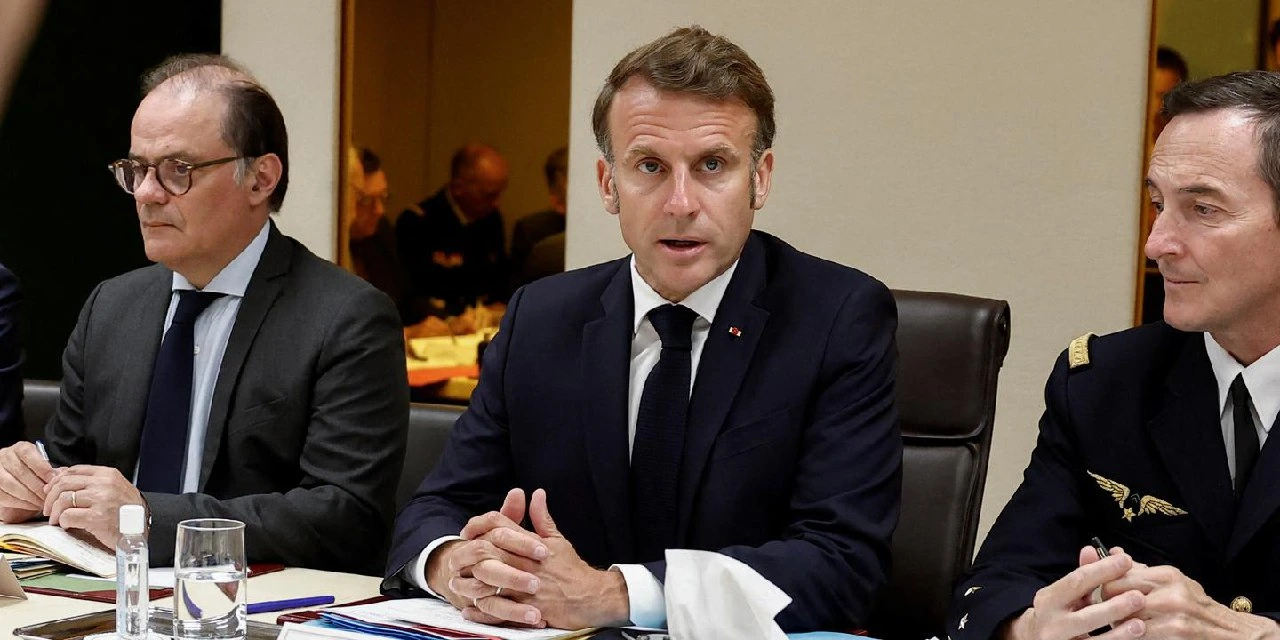After the U.S. struck Iranian nuclear facilities on the night of June 21–22, European capitals found themselves in a humiliatingly vulnerable position. The latest diplomatic efforts by European envoys to prevent escalation in the Middle East now appear utterly futile. Not a single key EU country — France, Germany, or the UK — condemned President Donald Trump’s decision to join Israeli airstrikes. Yet none of them could openly support it either. Once again, Europe finds itself a powerless bystander, sidelined from events it hoped to shape.
As Le Monde puts it, the United States has placed European governments in an “untenable position.” The strikes directly contradict and effectively negate Europe’s recent diplomatic initiatives aimed at avoiding such a scenario. Trump’s actions are a stark reminder of how illusory Europe’s mediating role really is.
No Condemnation, Just Concern
In a joint statement issued Sunday, French President Emmanuel Macron, German Chancellor Friedrich Merz, and British Prime Minister Keir Starmer called for restraint, saying:
“We urge Iran not to undertake further actions that could destabilize the region. We will continue our joint diplomatic efforts to de-escalate tensions and ensure that the conflict does not intensify or spread further.”
Notably, the statement contains no condemnation of the U.S. bombing. European leaders fear a worsening of the situation, especially as Iran’s potential for retaliation is uncertain. Macron, during a national defense council meeting Sunday evening, stressed:
“No strictly military response can produce the desired results, and the resumption of diplomatic and technical discussions is the only way to achieve our common objective — preventing Iran from acquiring nuclear weapons, and avoiding uncontrolled escalation in the region.”
This message had already been conveyed by Macron in conversations with regional leaders, including Iranian President Masoud Pezeshkian, Saudi Crown Prince Mohammed bin Salman, and Qatari Emir Tamim bin Hamad Al Thani.
Trump Leaves No Space for Europe
Strikingly, there has been no communication between Trump and Macron since their clash on the sidelines of the G7 summit on June 16. Nor has any dialogue been reported between the French president and Israeli Prime Minister Benjamin Netanyahu.
As Le Monde notes, Trump has no intention of allowing Europe any diplomatic role.
“Trump wants his victory and doesn’t want anyone taking even a crumb of credit for success. He strongly dislikes seeing Europeans try to mediate,” says a European diplomat, adding that “hatred of Europe is a pillar of this U.S. administration.”
This attitude was evident just days earlier. On Friday, as European foreign ministers met in Geneva with EU foreign policy chief Kaja Kallas to revive talks with Iran, Trump undercut the initiative from Washington:
“Europe won’t be able to help on this,” he declared shortly after the meeting concluded.
A Missed Opportunity in Geneva
European diplomats had even aligned with a key U.S. demand — that Iran abandon all uranium enrichment, a red line for Tehran — in a last-ditch effort to keep diplomacy alive. While the Geneva meeting didn’t lead to a breakthrough, European representatives sensed unusual flexibility from Iranian Foreign Minister Abbas Araghchi.
As one diplomatic source told Le Monde,
“The Iranians had been crushed by the Israelis. In Geneva, they were ready to make significant concessions — even before the Americans struck.”
But following the airstrikes, Tehran refuses any talks with the U.S. without an immediate ceasefire and is now reportedly considering turning to Moscow for mediation. European capitals are deeply uneasy with this possibility, especially given Vladimir Putin’s continued refusal to accept any ceasefire proposals in Ukraine.
NATO Divided, Europe Disjointed
With a NATO summit set to begin June 24–25 in The Hague and the G7 prematurely ended by Trump, European leaders are treading carefully. None dares openly challenge Trump, whose backing remains vital as the war in Ukraine drags on.
Meanwhile, Europe is not speaking with one voice. France, the UK, and Germany — all signatories of the 2015 Iran nuclear deal (JCPOA) — have diverging views on the U.S. strikes. French Foreign Minister Jean-Noël Barrot expressed “concern,” but German Defense Minister Boris Pistorius praised Washington’s actions:
“The Americans took responsibility in the region. What matters is that a significant threat has been removed. It’s good news for the Middle East — and for Europe.”
German Chancellor Friedrich Merz had earlier remarked that Israel was “doing the dirty work” in addressing Iran’s nuclear threat.
France Begins Evacuations
Amid rising instability, France has started evacuating its citizens from Israel. According to French authorities, military flights (A400M) are already transporting French nationals from Ben Gurion Airport to Cyprus, pending Israeli approval. Civilian evacuation flights from Amman and Sharm el-Sheikh have also been organized. On Sunday night, 160 French citizens arrived in Paris. Another 150 were expected to leave Jordan on Monday. The Elysée Palace has announced a new defense council meeting for Tuesday.
This article was prepared based on materials published by Le Monde. The author does not claim authorship of the original text but presents their interpretation of the content for informational purposes.
The original article can be found at the following link: Le Monde.
All rights to the original text belong to Le Monde.


















